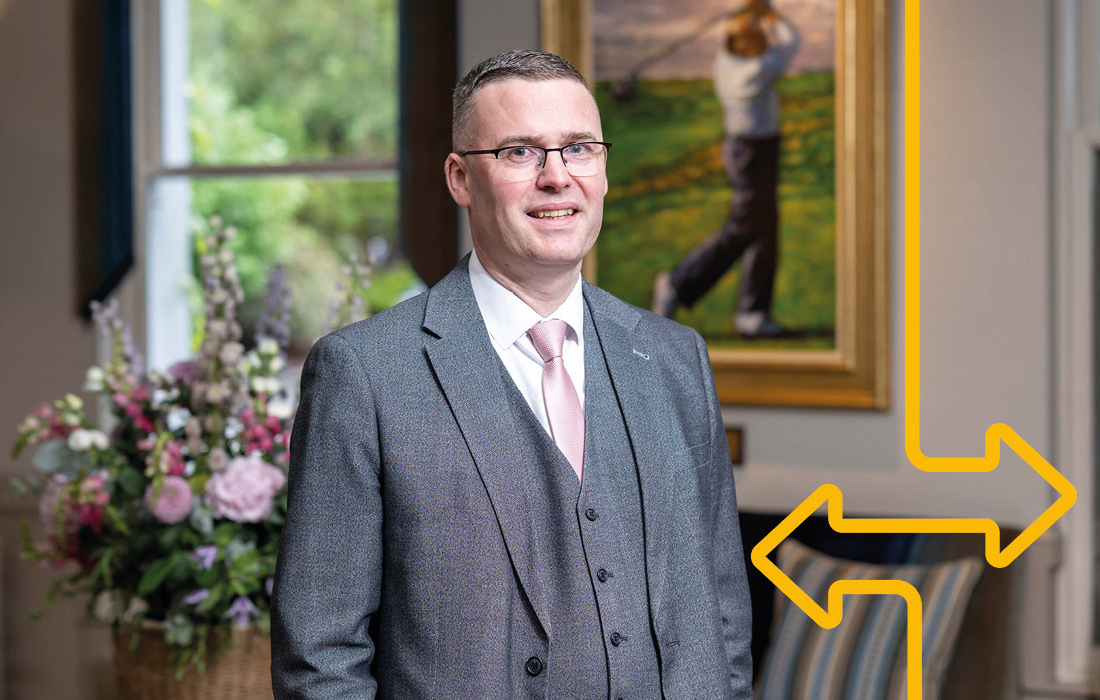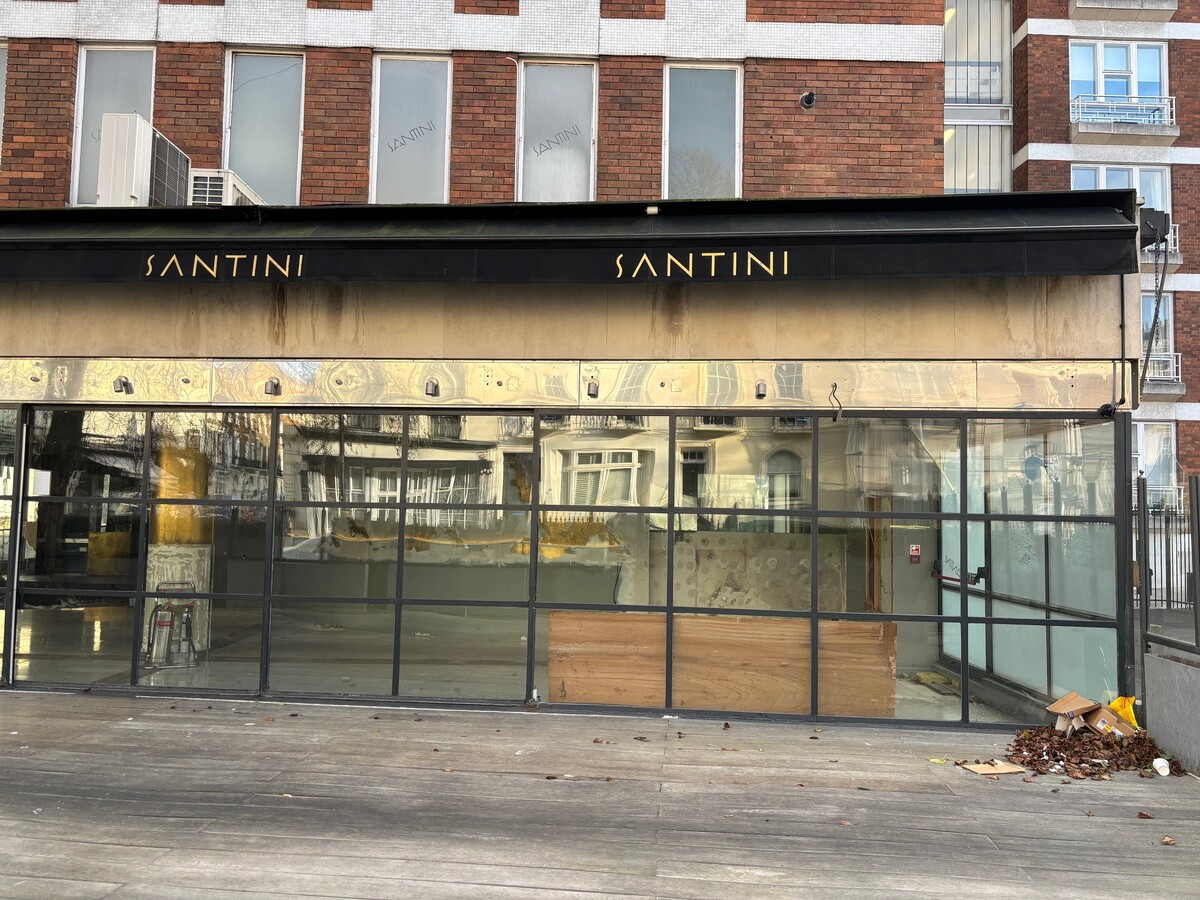How to be more resilient in the face of workplace disruption
Ensuring staff are supported will be key as we face a tough winter ahead. At The Caterer’s Dealing with Workforce Disruption Webinar, held in partnership with Ceridian, panelists shared advice on people-centric approaches
Brexit, the pandemic and now the cost of living crisis have posed huge challenges to the hospitality workforce. But those disruptions have also made operators more resilient in how they approach change.
In fact, in a recent survey of 2,000 global leaders, more than two-thirds of respondents said they feel confident in their organisation’s ability to handle a variety of disruptions quickly – according to the poll from HR software company Ceridian.
Rachel Mandley, account executive at Ceridian, was working in an operational role in HR when Covid hit. “I don’t think any HR leader expected to have to deal with what they dealt with at that period. And to come out the other side – albeit scarred, burnt and burnt-out. It does inspire that confidence to deal with future disruption. It's almost like when you don’t expect to finish a marathon and you do it.”
Those sentiments are also reflected in the hospitality sector. Richard Adams, HR director for the Cairn Group, which employs nearly 2,500 people across its hotels, says they are still dealing with – and learning from – the experience.

Lessons learned
“Scarring” is an appropriate word to use in reference to the pandemic, Adams says. “I think a lot of our managers and our leaders are stronger for it. I’m not prescribing that as an experience to go through, but the flip side is that during that time they were very hands-on,” he says. “There’s that mindset of roll your sleeves up and do everything yourself.” However, he adds that may not always be the right approach for every situation.
The group is investing in leadership development in the coming months. “And some of that will look at how do you change your mindset and the way you lead to engage and involve others and get people to come to you with solutions. Rather than having to carry the weight ourselves.”
When it comes to recruitment, the business is in a very different place to the “much more erratic” labour market a year ago. “We’re seeing really high volumes of applications, higher than we’ve seen in previous years. And I think technology has played a part in that, which is a good thing,” he says. “The challenge is finding the right talent and getting people in there, but I firmly believe the people are out there.”
Mike Ramscar, systems and reports manager at the Eden Project, agrees. “We’re in quite a remote location, so again, we’ve got a good job pool but getting the skills isn’t always straightforward.” He says the business has just deployed a new HR system which has helped streamline the recruitment process. Although, when it comes to building resilience, the right culture is everything.
“We’ve got a very positive, supportive culture at the Eden Project. I think that contributes to people’s wellbeing and the ability to cope with tough measures and obviously the challenges we’ve got to face in the next few months.”
Shannon Rockey, people and culture director for the Lime Wood Group, which employs 230 people across its hotels, echoes the point about feeling “slightly bruised” by the early weeks of the pandemic.
She says a lot of the benefit schemes introduced during the pandemic are also still in place. “There's a lot of people who have been very [well] looked after over the last couple of years. We’ve had a 10% pay rise over the last two Aprils in our company.”
Now the focus is ensuring leaders are continuing to look after their teams. “So, this is one-to-ones, chatting to people, motivating them. Otherwise, they're not going to be here in the spring.”
Lime Wood’s head chef Luke Holder has also introduced a three-and-a-half day working week in the kitchen to improve the work-life balance. “It’s transformed a lot of that working life and it’s lowered turnover dramatically,” she says.
Managers also keep an eye out to make sure staff aren’t getting overworked, sending people home early when their hours have been exceeded the previous week. “So, we’re having these watch meetings as well.”
It all comes back to looking after your people, she says. “If every time you interact with any person, remember that they are your internal guest you’re always trying to create that – ‘why would I want to leave?’ culture among people. And get through this winter.”
**Support systems **
There’s no denying the cost of living squeeze is getting tighter. Cairn Group’s Adams says the company recently adjusted its payroll systems to help support staff through the crisis, putting in place a flexible payment tool to enable staff to access wages in advance of when they’d normally get paid.
“No one is surprised [to hear] there is a link between financial wellbeing and emotional and mental wellbeing,” he says. “We put that in early on this year and engagement has been very positive. I think we have to accept there are people that have a need for it. And we would rather they’re not getting charged extortionate amounts and potentially exposing themselves to risk. We’d far rather they use the solution we’ve been able to make available.” He adds they are also due to roll out a programme to help signpost people to financial advice.
The Eden Project is reviewing whether to put a similar flexible payment tool in place, says Ramscar. “You do have to work quite closely with staff to make sure they understand how it works, so there are some risks and well as benefits around it.”
Other technology platforms the organisation is using include online training tools. “We have systemised training and we use a workplace intranet. That’s been well-adopted and it’s a very good platform… It’s highly interactive. You can do schedule training, ad hoc training, and training to promote different skillsets,” says Ramscar.
Rockey says the Lime Wood Group is conscious about not trying to introduce too many new systems at this point in time. “We’re not launching anything new right now. [We] don’t want any more disruption,” she says.
For Ceridian’s Mandley, it’s all about ensuring the technology is working properly. When it comes to recruitment, tools can help “weed out the candidates that aren’t a good fit, because ultimately someone has to sit there going through 500 applications, going ‘no, no, no experience, no experience.’”
The purpose of technology ought to be to make everyone’s lives easier, she says: “I think the pandemic made us look at the systems we have and ask if they are keeping pace.”
As the saying goes, the only constant is change, so constantly reassessing the needs of your people and business appears to be the key message when meeting new challenges.
Tips on how to be disruption-proof
Building resilience in the face of huge uncertainty is no easy task. The panellists share their recommendations on how to hone your skills to become disruption-proof and get through the winter relatively unscathed.
Stay agile
For Rachel Mandley, from Ceridian, it’s not so much about preventing disruption as learning how to deal with the inevitable. “I don’t know if I personally think there’s such a thing as being disruption proof. I think the skill is being able to deal with whatever life throws at us as a business,” she says. “It’s about being disruption-ready and agile.”
Empower people
Mike Ramscar from the Eden Project agrees that preparedness is key. “It’s about being able to deal with change, so that’s change management and adapting to change. That’s the key thing because it is such a dynamic environment,” he says. “Whether it’s the financial challenges or the resource challenges, it’s the capability to deal with that and empower people to have the tools and mechanisms to get the best out of it.”
Active listening
“I think the key thing is that our leaders listen,” says Richard Adams from the Cairn Group. “Because many of our people were outstanding during the pandemic, coming up with new solutions, new ideas. And listening to customers... what can be even better, or what do they actually want? He says: “I think, as leaders, we can all have that temptation to think ‘I know what I’m doing here and I’m going to drive an outcome and it’s going to be fine’. Whereas actually, all the answers are around us.”
Enjoy the chaos
“For me, every leader has one real purpose: you’ve got to be at all-times creating a replacement. Because that’s the biggest disruption we have is turnover in hospitality,” says Shannon Rockey from the Lime Wood Group. Her other key message is to embrace the turmoil. “If it’s all coming at you, it’s about getting in that mindset that I’m going to enjoy this,” she says. “So, enjoy the chaos and get stuck in – teamwork is everything. Create a replacement, make life and work everything... and then whatever it throws at you, you can smile at it.”
About Ceridian
Ceridian is a global human capital management (HCM) software company. Dayforce, our flagship cloud HCM platform, provides human resources, payroll, benefits, workforce management and talent management capabilities in a single solution. Our platform helps you manage the entire employee life cycle, from recruiting and onboarding to paying people and developing their careers. Ceridian provides solutions for organisations of all sizes, from small businesses to global organisations.
















